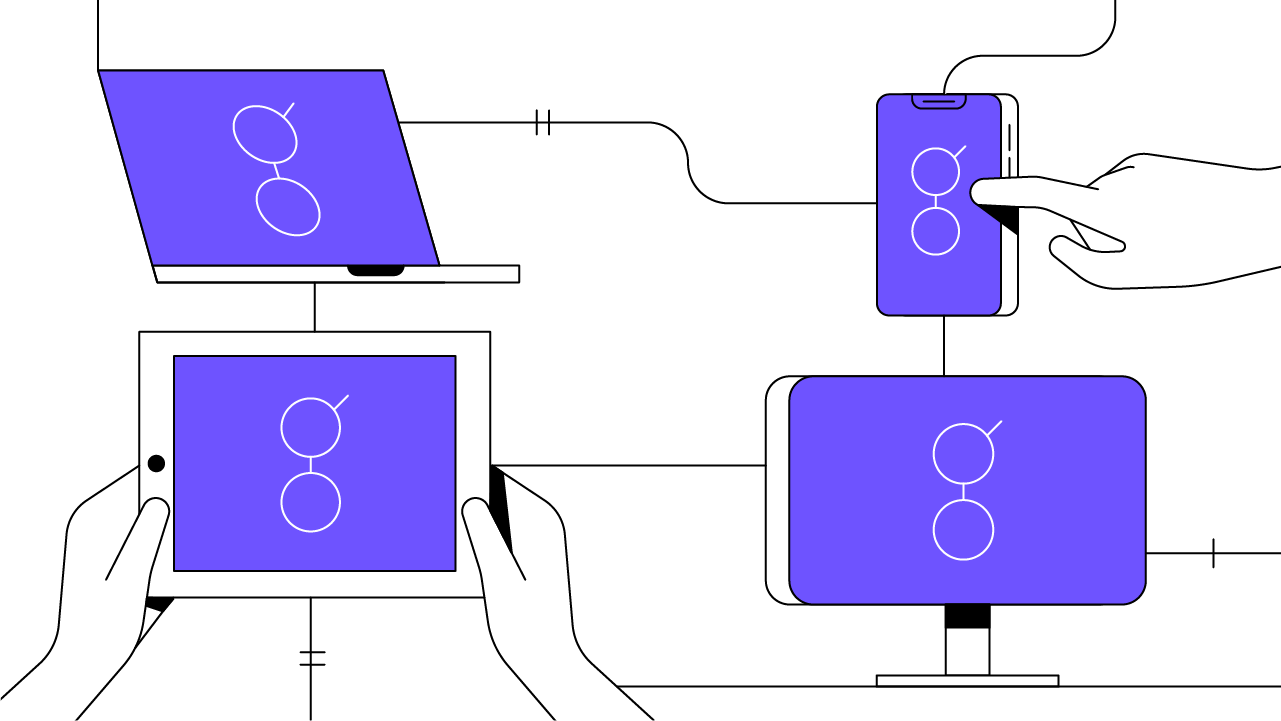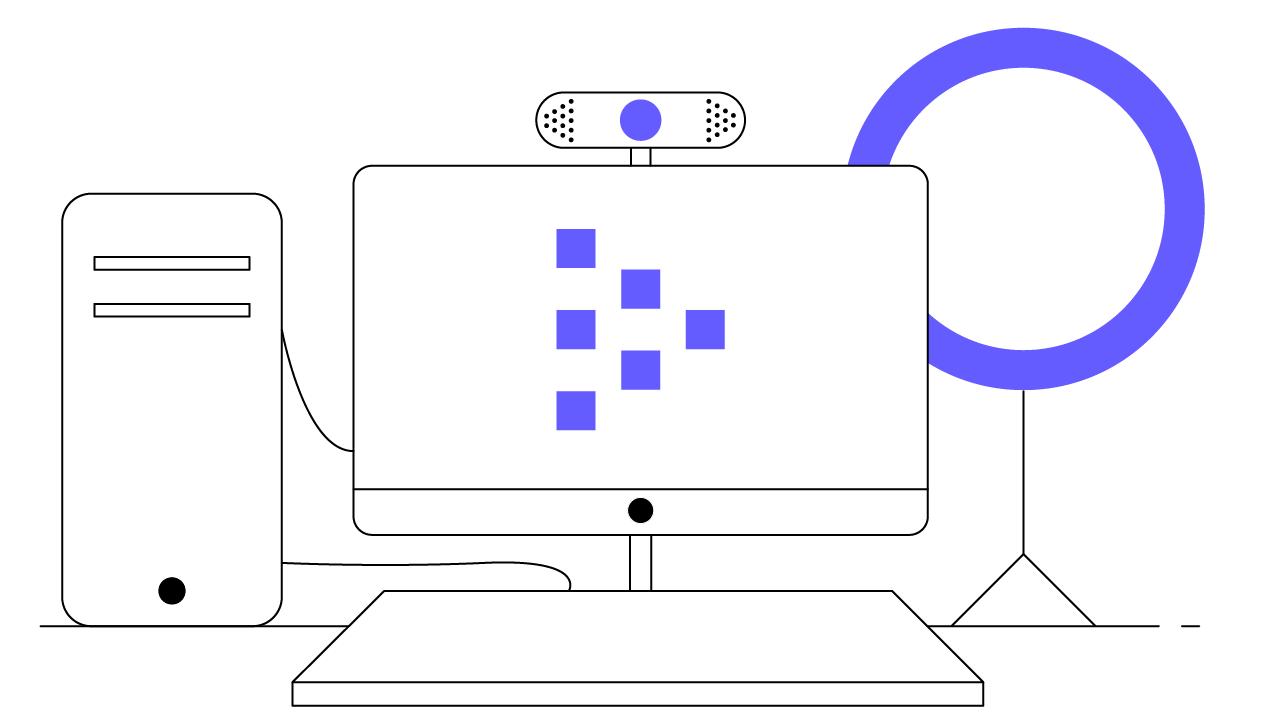Contents
Theta Network: Next-Generation Video Streaming
Theta Network is a blockchain-enabled content streaming platform that has attracted an impressive investor roster and global user base.
Updated January 10, 2022 • 6 min read

Summary
Theta Network is a decentralized video delivery network that provides a wide range of blockchain-enabled solutions to the problems facing the traditional video-streaming sector. The platform provides high-quality video streaming at a reduced cost relative to traditional service providers, as well as multiple incentive mechanisms for decentralized bandwidth and content-sharing.
What Is Theta Network?
While most centralized video delivery platforms face intermittent bottlenecks within content-delivery pipelines, Theta’s video-streaming services rely on a distributed network of users who voluntarily contribute their spare bandwidth and computing resources to run the Theta platform in exchange for Theta Fuel coin rewards.
Theta users can earn Theta coin rewards for sharing videos with other users via Edgecast, Theta Network’s content transcription and distribution decentralized application (dApp). As a result, Theta has established a reliable, user-driven method of powering its growing ecosystem of entertainment-focused services — most of which are focused on esports, music, TV, movies, education, and enterprise conferencing.
The global video-streaming industry is projected to grow at a compound annual growth rate (CAGR) of 20.4% from 2020 to 2027, and the Theta team has identified multiple ways to deliver tangible end-user value within this rapidly growing sector. More specifically, Theta Network users enjoy full access to a global infrastructure focused on unrestricted and efficient video content and data delivery. Because Theta Network is powered by tens of thousands of nodes, it is more resistant to potential content-delivery disruptions and digital last-mile delivery issues.
Significant Real-World Adoption
Theta Network was developed by Theta Labs, and its team is packed with a strong lineup of media and entertainment professionals based in Silicon Valley and Asia. Additionally, the platform is backed by a number of major corporations like Sony, Samsung, and CAA, traditional venture capital firms including DCM and Sierra Ventures Fund, and blockchain-focused institutional investors like Node Capital and DHVC. Theta has also managed to secure several prominent advisors, including Steve Chen, the co-founder of YouTube, and Justin Kan, the co-founder of Twitch.
Theta has leveraged its impressive network and in-house capabilities to launch a broad range of strategic partnerships that deliver immediate and lasting value to audiences around the world. Samsung in particular has helped advance Theta’s adoption, and the platform’s main esports streaming dApp, Theta.tv, will be included in future Galaxy S20 smartphones shipped to the U.S. — thereby expanding Theta’s potential user base by 75 million. Theta has also been working with Samsung’s Visual Display group to help bring Theta Network’s content-streaming services to their smart TV lineup.
Theta has also partnered with other blockchain projects to increase awareness and adoption. Binance’s premier global esports tournament, “The Battle of Asia 2020,” was sponsored by Theta Network. Binance plans to stream all future esports matches through Binance.com and Theta.tv, while integrating its exchange token, Binance Coin (BNB), into a custom-built Theta video player with interactive chat functions. In addition, Theta has partnered with Gumi Cryptos to enter the Japanese media market and live-stream major cryptocurrency conferences including Consensus and the Crypto Asia Summit.
How Does Theta Network Work?
While Theta was initially launched as an ERC-20 token, the project unveiled its own mainnet blockchain in March 2019, following a $20 million USD private token sale in 2017. Although Theta is now its own standalone project, it remains ERC-20 compliant, which means that Theta can leverage Ethereum’s massive user base and network benefits while deploying proprietary technologies to improve content-streaming delivery and enhance end-user experience.
Theta Network runs on a modified Proof-of-Stake (PoS) consensus mechanism known as Multi-Level Byzantine Fault Tolerance (BFT), which utilizes a small subset of nodes to speed up approvals and is therefore faster and more resource-efficient than traditional Proof-of-Work (PoW) networks. This configuration relies on a smaller subset of 10-20 nodes, called the “Validator Committee,” to give the initial approval of a transaction before passing it on to the “Guardian Pool” — a much larger group of nodes responsible for fully validating transactions and adding them to Theta’s blockchain ledger. This design helps achieve a healthy balance between transaction throughput, consistency, and decentralization.
From there, Theta Network’s primary data-storage and delivery capabilities are enabled through three core features:
Off-Chain Micropayments Pool: Theta has created an off-chain pool for micropayments to streamline the network’s core operations. This system utilizes an aggregated signature gossip scheme, whereby a set of Guardian Nodes compiles partial signatures from its neighboring nodes before communicating the aggregated signature to the rest of the network. This allows the signature share of each node to quickly reach other participating nodes while minimizing the resources needed to execute these communications. As a result, any user can withdraw using off-chain transactions, which frees up more node processing power for the network’s core data storage, transcription, and delivery purposes.
Edge Nodes: In addition to Validator and Guardian Nodes, Theta Network also utilizes Edge Nodes, which are hosted by Theta community members. Introduced in Theta’s 2.0 mainnet launch, Edge Nodes allow users to transcode and relay video content as well as share excess bandwidth and processing power across the network without needing centralized servers. This Edge Node network forms the community-driven core of Theta’s Edgecast platform, which underpins the network’s peer-to-peer streaming dApps. As of early 2021, there were more than 7,000 Edge Nodes across the world. Edge Node operators receive token rewards in exchange for contributing to Theta’s global content-sharing ecosystem.
Theta Token Minter: In late 2020, Theta added support for flexible Turing-complete smart contract implementation, which opened up a whole new realm of potential use cases and dApp features. To empower users to tap into these new capabilities, Theta Labs launched the Theta Token Minter, which allows any user to create new TNT-20 tokens on the Theta blockchain with no smart contract experience needed. Users can simply input the intended token name, ticker symbol, and supply parameters of their new token and the Token Minter will automatically mint the new tokens. The fact that these tokens can be created without technical expertise and configured to have either a permanently fixed or variable supply opens the door to a wide range of new applications and assets on the Theta blockchain.
At its core, Theta Network is an open-source protocol that allows dApps to be built on top of its platform. Theta relies on a dual-coin model to enable its network operations:
Theta Coin (THETA): The THETA coin handles the governance of the Theta protocol. Users can stake THETA to serve as a Validator or Guardian Node in order to help produce new blocks, and participate in the protocol's governance processes. The total supply of THETA coins is constant and fixed at 1 billion.
TFUEL Coin: Theta Fuel (TFUEL) is Theta Network’s coin, which plays a similar role to Ethereum’s gas. TFUEL coins are used for on-chain transactions such as rewarding Edge Node relayers for sharing original content, relaying existing video streams to other users, and interacting with smart contracts on the Theta Network. At the time of Theta’s mainnet launch, the initial supply of TFUEL coins was 5 billion, and this supply continually increases each year at a fixed rate of 5%.
THETA, TFUEL, and Theta Network’s TNT-20 tokens can be securely stored in the official Theta Wallet app. It is available on both Android and iOS and can be easily integrated with hardware wallets such as Ledger and Trezor. Users can also opt to use Theta’s desktop wallet, and in late 2020 Theta Labs released a Theta wallet extension for the Chrome browser. Users can also use the Theta Explorer to view on-chain transactions, addresses, and blocks on the Theta blockchain.
The Future of Theta Network
While Theta is currently focused on video-on-demand services and other entertainment-oriented applications, the team’s long-term vision for the Theta Network is to serve as a decentralized, end-to-end protocol for processing and delivering all types of data, including operating systems, app updates, and other forms of web content.
The Theta team is making steady progress towards this goal with the upcoming launch of version 3.0 of Theta’s mainnet. This updated platform will introduce TFUEL staking and burning through the concept of “Uptime Mining” — the tokenization of internet bandwidth and availability. To participate in this new method of resource-sharing, users will be able to stake TFUEL coins in their Edge Nodes to upgrade them to Elite Edge Nodes, which will let them earn additional rewards. By better controlling the scarcity of their TFUEL and creating new ways to incentivize user engagement, Theta will be able to progress towards becoming a more broadly usable, self-sustainable content-delivery platform.
Cryptopedia does not guarantee the reliability of the Site content and shall not be held liable for any errors, omissions, or inaccuracies. The opinions and views expressed in any Cryptopedia article are solely those of the author(s) and do not reflect the opinions of Gemini or its management. The information provided on the Site is for informational purposes only, and it does not constitute an endorsement of any of the products and services discussed or investment, financial, or trading advice. A qualified professional should be consulted prior to making financial decisions. Please visit our Cryptopedia Site Policy to learn more.

Is this article helpful?


